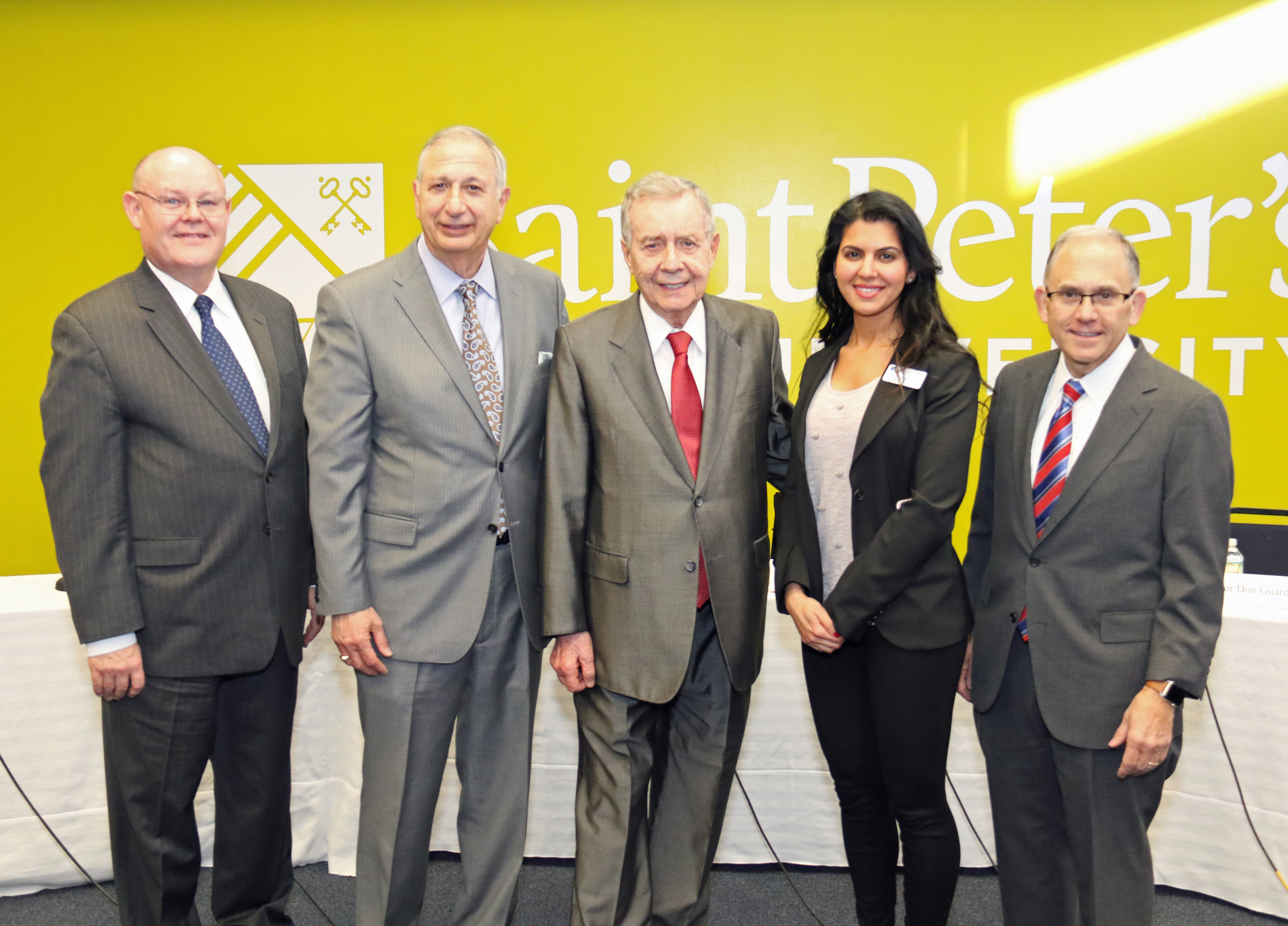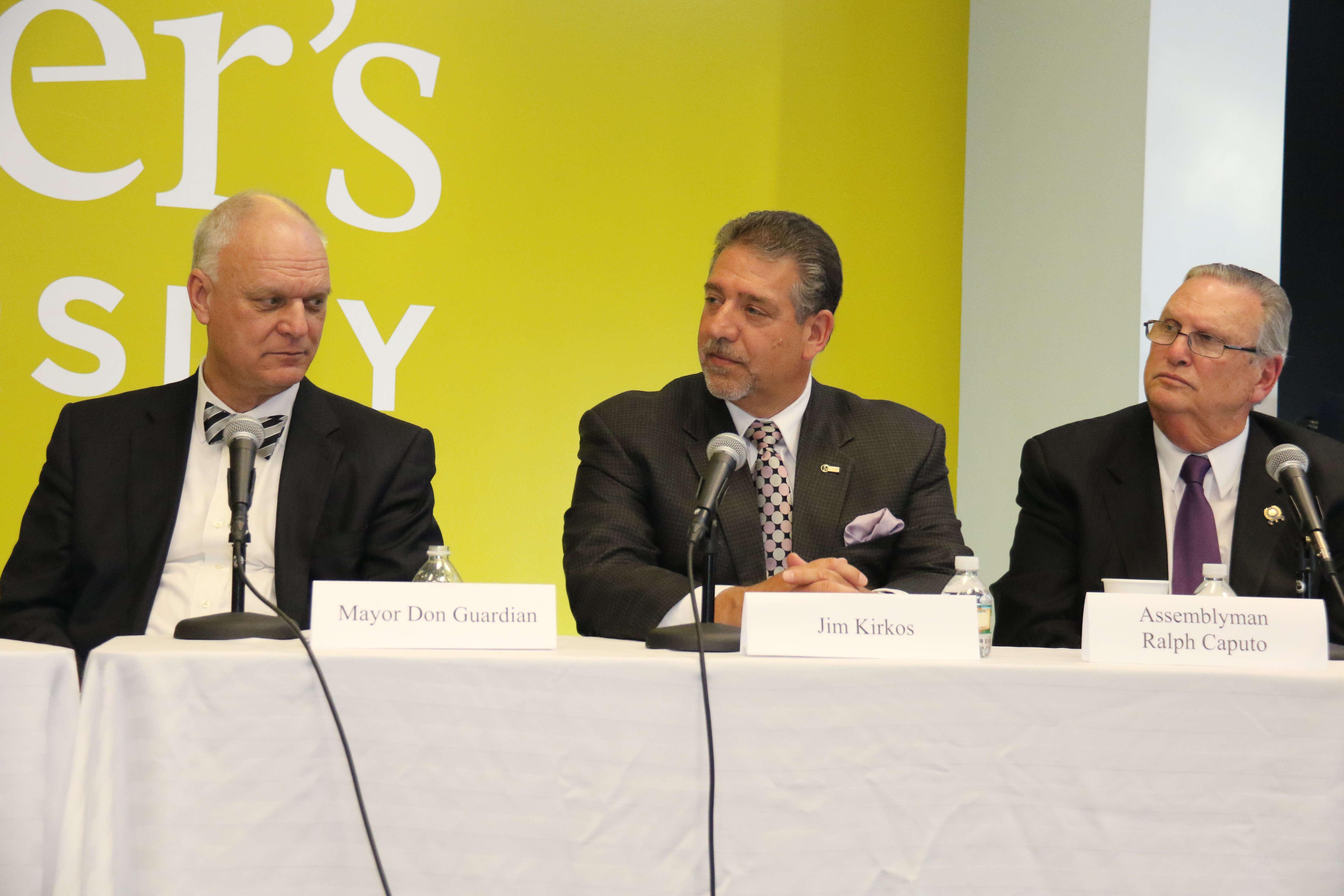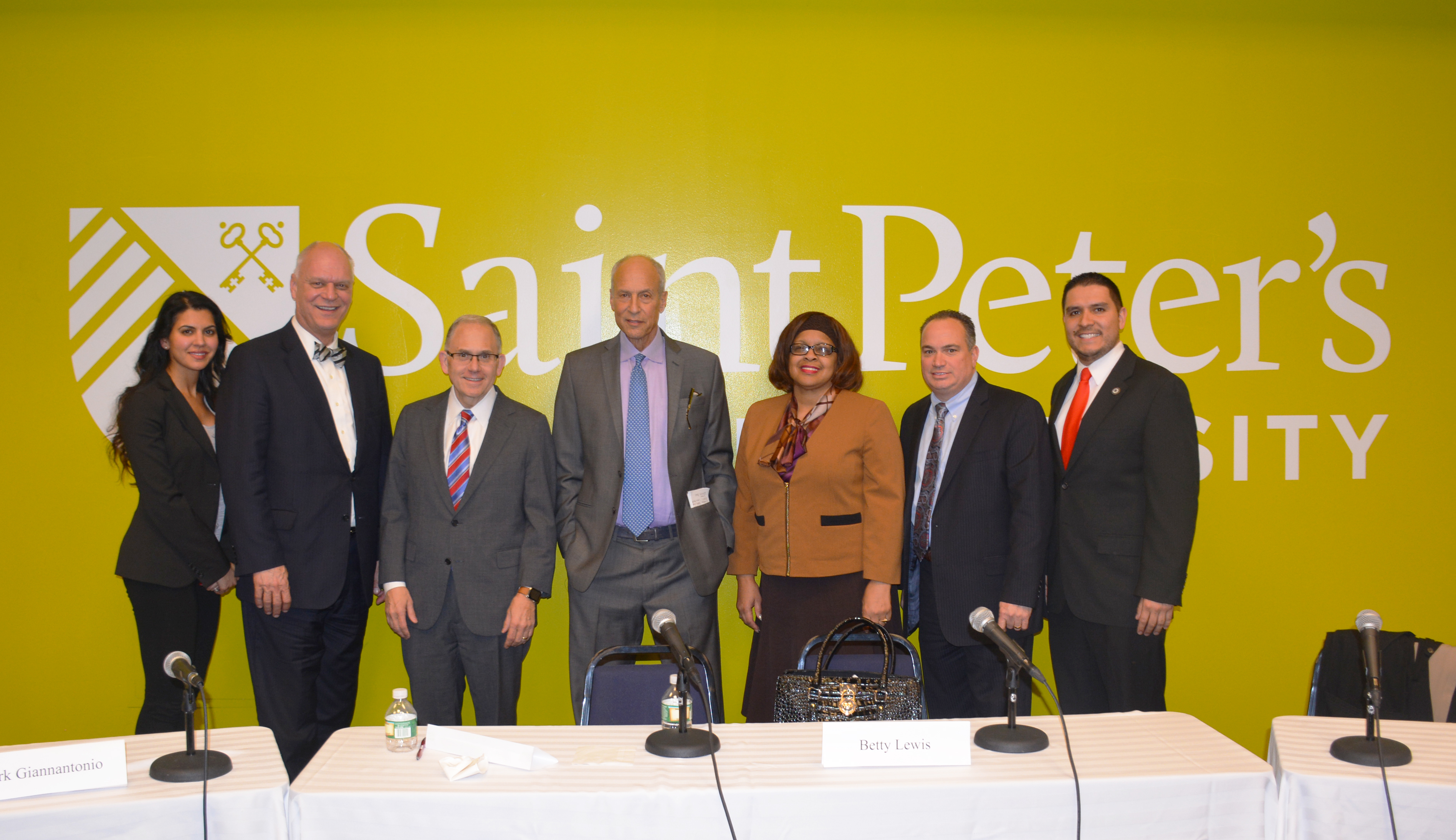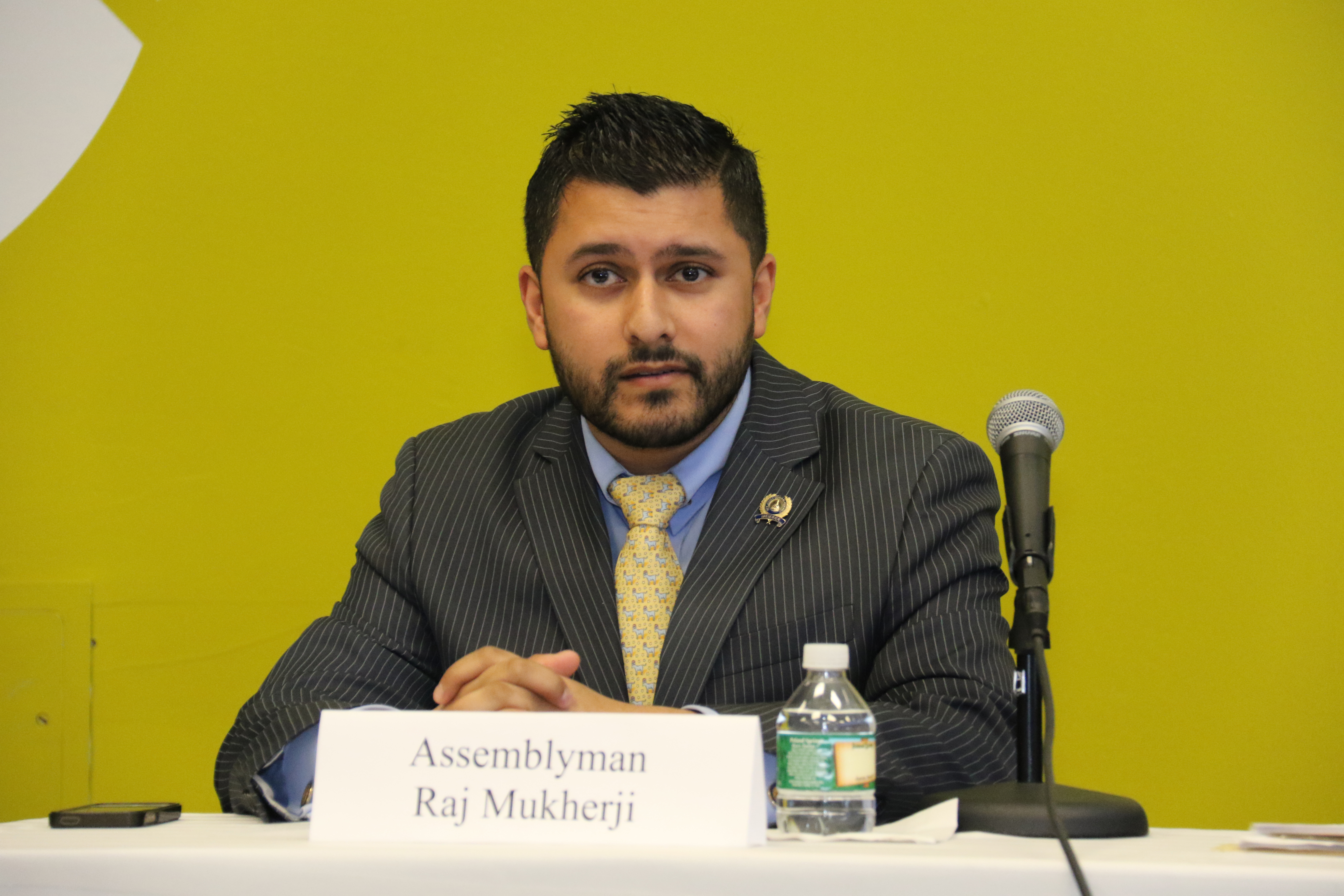The Guarini Institute for Government and Leadership at Saint Peter’s University is dedicated to exploring key public policy issues at the local, state and national level. The latest panel hosted by the Institute on Monday, March 21 was focused on a critical issue for the city of Atlantic City and for the state of New Jersey – the expansion of casinos into northern New Jersey.
This month, both houses of the State Legislature passed a resolution to put a question on the November 8th ballot asking voters to amend the constitution to allow casinos outside of Atlantic City. An esteemed panel of experts came to Saint Peter’s to discuss this timely topic. The members of the panel included Don Guardian, mayor of Atlantic City; Ralph Caputo, assemblyman of the 28th legislative district and chair of the Tourism, Gaming and the Arts Committee; Raj Mukherji, assemblyman of the 33rd legislative district; Jim Kirkos, president and CEO of the Meadowlands Chamber of Commerce; Mark Giannantonio, president and CEO of Resorts Casino & Hotel; and Betty Lewis, president of the Atlantic City chapter of NAACP. Michael Aron, chief political correspondent of NJTV served as a moderator for the panel.
The panel occurred at a challenging time for the mayor of Atlantic City as it was held within the hour of the announcement that the city government would be shut down for 22 days beginning on April 8. The challenges that the city is currently facing had a significant impact on the conversation for the evening.
“There is nothing short of a tsunami that is affecting Atlantic City right now,” said Giannantonio. “While I don’t think there is an easy solution I think all of the problems are solvable.”
Giannantonio felt that if North Jersey casinos were to open then five casinos in Atlantic City would close. He went on to explain that Atlantic City is attractive because of its scale and that the North Jersey market makes up the city’s best customers and they are a market that is irreplaceable.
On the contrary, the North Jersey representatives on the panel argued that a casino expansion would be beneficial for revenue and jobs for the state. “The goal [of the constitutional amendment] is to save the gaming business in this state, create jobs, have a positive effect on the economy and send resources to Atlantic City that will be spent in a proper way to bring about non-gaming development along with the casino industry,” said Assemblyman Caputo.
Lewis disagreed with Assemblyman Caputo’s assertion and reinforced that Atlantic City depends on the gaming market. “When our legislators say they are going to expand casinos into North Jersey and send money to Atlantic City, I don’t trust them because when we voted for casino gaming they promised us that we would benefit from it ways that have not been realized,” she said.
The two prospective areas for a North Jersey casino are Hudson County and the Meadowlands area and while some members of the audience and panelists questioned traffic concerns and the negative impact casinos in these areas would have on Atlantic City, some of the panelists argued that North Jersey casinos are a necessity.
“I believe the only way to keep the gaming revenue in our state is to recapture the gross gaming revenues that have left our state for our neighbors in recent years,” said Mukherji. “The outflow of gaming revenues to other states is also an outflow of tax revenues.”
“We are at a moment in time where at the Meadowlands Sports Complex there is $4.5 billion of new investment happening with the American Dream Project,” said Kirkos. “We think there is an opportunity to grow a destination in the northern part of the state and generate really significant tax revenues for New Jersey and to support Atlantic City.”
Meanwhile Mayor Guardian issued a warning to the northern part of the state regarding the impact of casino gaming. “Make no mistake, casinos is a sin industry, while it brings jobs and money, it also brings a lot of problems,” he said. “If you don’t think prostitution, drugs and minor crime comes with the 25 million people that gaming brings to Atlantic City, you are being very foolish. If you think the $20 million in property taxes is going to pay for the police that you need to maintain the casino, again it’s very foolish.”
Guardian explained that the city is currently focusing on investing its efforts into additional non-gaming sources of revenue such as corporate offices, state-of-the-art clubs, fine dining, restaurants, entertainment and more because as he stated, “the future is not in gaming.”
The panel provided significant insight on the topic for voters to consider when it comes time to head to the polls in November. Aron closed the panel with the insightful statement, “It’s a tough issue and both sides make sense, which is what makes for a tough issue.”
Future events from the Guarini Institute for Government and Leadership have been planned. Click here to learn more.




